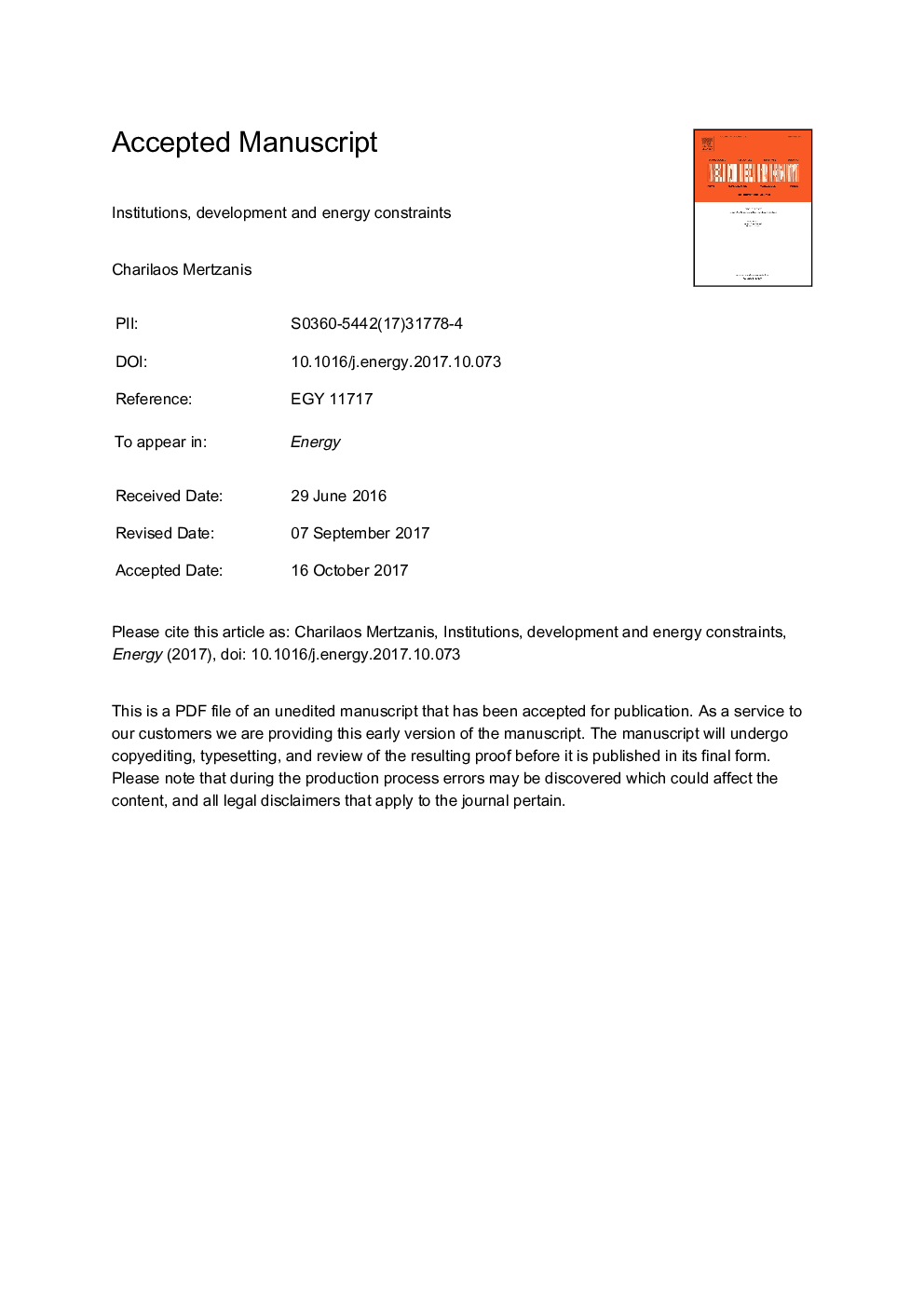| Article ID | Journal | Published Year | Pages | File Type |
|---|---|---|---|---|
| 8072572 | Energy | 2018 | 52 Pages |
Abstract
Micro survey data is used to explore the impact of firm-specific characteristics on firms' access to energy in 138 developing countries. The results show that firm-specific characteristics (age, size, sector of activity, location, ownership, etc.) are broadly significant predictors of firms' access to energy. In addition, energy supply conditions are also significant predictors of firms' energy constraints. The predictive power of these factors differs among sectors of activity, geographical regions and the income levels of developing countries. The predictive power of firm-specific characteristics is mitigated by national economic and non-economic factors, such as development and institutions. Indeed, the national levels of economic, financial and human development as well as income inequality, along with regulatory governance conditions and social and legal structures, all play a role in determining firms' energy constraints. The composition of energy generation sources play a significant role too. The results show that the classification of firms as energy-constrained or unconstrained ones in developing countries may be better assessed by accounting for the role of both micro- and macro-level factors in different countries.
Related Topics
Physical Sciences and Engineering
Energy
Energy (General)
Authors
Charilaos Mertzanis,
